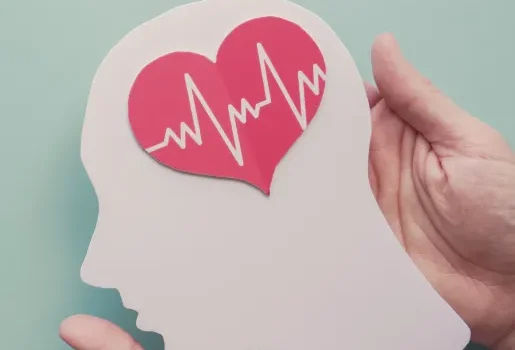Your emotional well-being plays a significant role in your heart health, often more than you might think. The connection between your emotions and blood pressure is a crucial factor in managing your overall cardiovascular health. Being aware of this link can help you better control your emotions, ultimately improving your heart health.
The Stress Response and Its Impact on Blood Pressure
When you’re faced with stress, your body triggers the fight-or-flight response, releasing hormones like adrenaline and cortisol. These hormones cause a temporary increase in both your heart rate and blood pressure, preparing your body for immediate action.
While occasional stress is a normal and even healthy part of life, chronic stress can lead to long-term blood pressure problems. Imagine revving an engine constantly without ever going anywhere—it puts unnecessary strain on the system. This constant state of alertness can lead to sustained hypertension and long-term damage to your heart.
To combat stress effectively, consider these strategies:
- Incorporate relaxation practices such as yoga, deep breathing, and meditation into your routine to lower stress hormone levels.
- Engage in regular physical activity to burn off stress and release nervous energy.
- Review your commitments and learn to say no when necessary. Delegating tasks can relieve pressure.
- Reframe challenges in a positive light to reduce emotional intensity and gain a new perspective.
How Anxiety and Anger Affect Your Heart
For individuals prone to anxiety or anger, these intense emotions can have a direct impact on blood pressure. During an anxiety attack, for example, your body experiences a rush of adrenaline that can cause your heart to race and blood pressure to spike to dangerous levels within moments.
Similarly, anger triggers the release of stress hormones that constrict blood vessels and increase heart rate. Studies have found that the two hours following an angry outburst are linked to a heightened risk of cardiovascular events.
To protect your heart from these emotional triggers, consider finding healthy ways to release tension. Creative activities, physical exercise, or journaling are all excellent outlets for processing strong emotions. Talking to a professional can also provide valuable tools for managing anger or anxiety. By understanding the root causes of these emotions, you can better control them.
The Link Between Depression and Blood Pressure
Depression can significantly affect your physical health, especially in terms of blood pressure. Those who suffer from clinical depression often experience elevated cortisol levels, which can contribute to hypertension over time. Furthermore, depression can lead to unhealthy behaviors, such as smoking, excessive alcohol consumption, lack of exercise, and poor dietary habits—all of which are harmful to cardiovascular health.
Research supports the idea that treating depression can lead to improved physical health, including better blood pressure control. Whether through medication, therapy, lifestyle changes, or a combination of these, addressing depression can have profound benefits for both emotional and physical well-being.
Promoting Positivity and Balance for Heart Health
To counterbalance stress and improve emotional health, it’s important to cultivate positivity in your life. People who maintain an optimistic outlook tend to have lower blood pressure.
Laughter is a simple yet powerful tool for promoting heart health. Finding humor and joy in everyday moments, or even forcing a smile when you’re feeling down, can trigger the release of feel-good hormones. Over time, this can help lift your mood and positively influence your cardiovascular health.
Additionally, finding meaning and purpose in life can reduce stress and improve your overall perspective. Taking time to appreciate the little things can provide a sense of balance amidst life’s daily challenges.
Staying Connected and Active
Social connection also plays a critical role in heart health. Loneliness and isolation have been linked to poor cardiovascular health, so maintaining close relationships and engaging with others can be beneficial for both emotional and physical well-being.
If you feel your blood pressure rising, take a moment to reset. Deep belly breaths, stepping outside for fresh air, or simply taking a short break can help alleviate the stress before it builds up.
Managing Blood Pressure Through Emotional Wellness
The link between emotional health and blood pressure is undeniable. By using strategies such as controlled breathing, anger management, and addressing issues like anxiety or depression, you can take charge of your emotions and your heart health.
Focus on progress, not perfection, as you work towards emotional wellness. Life has its ups and downs, but being kind to yourself and practicing self-care can help you achieve a healthier balance. The improvements in your emotional health will not only support your blood pressure management but also empower you to make healthier choices for your long-term well-being.











